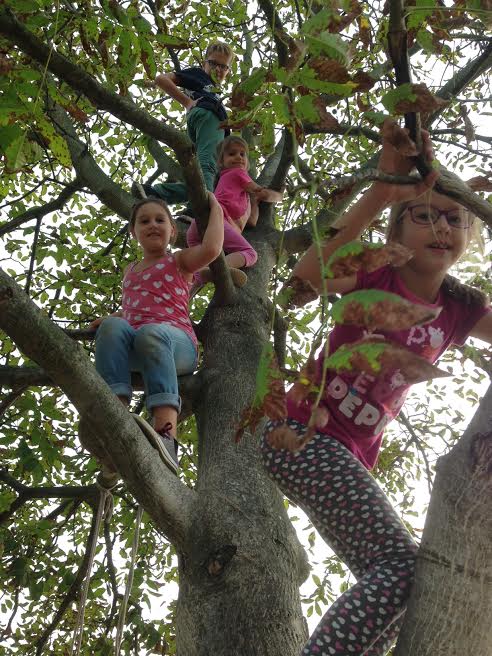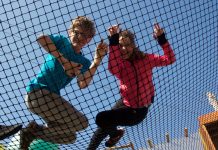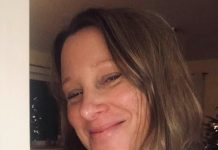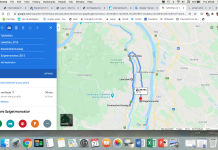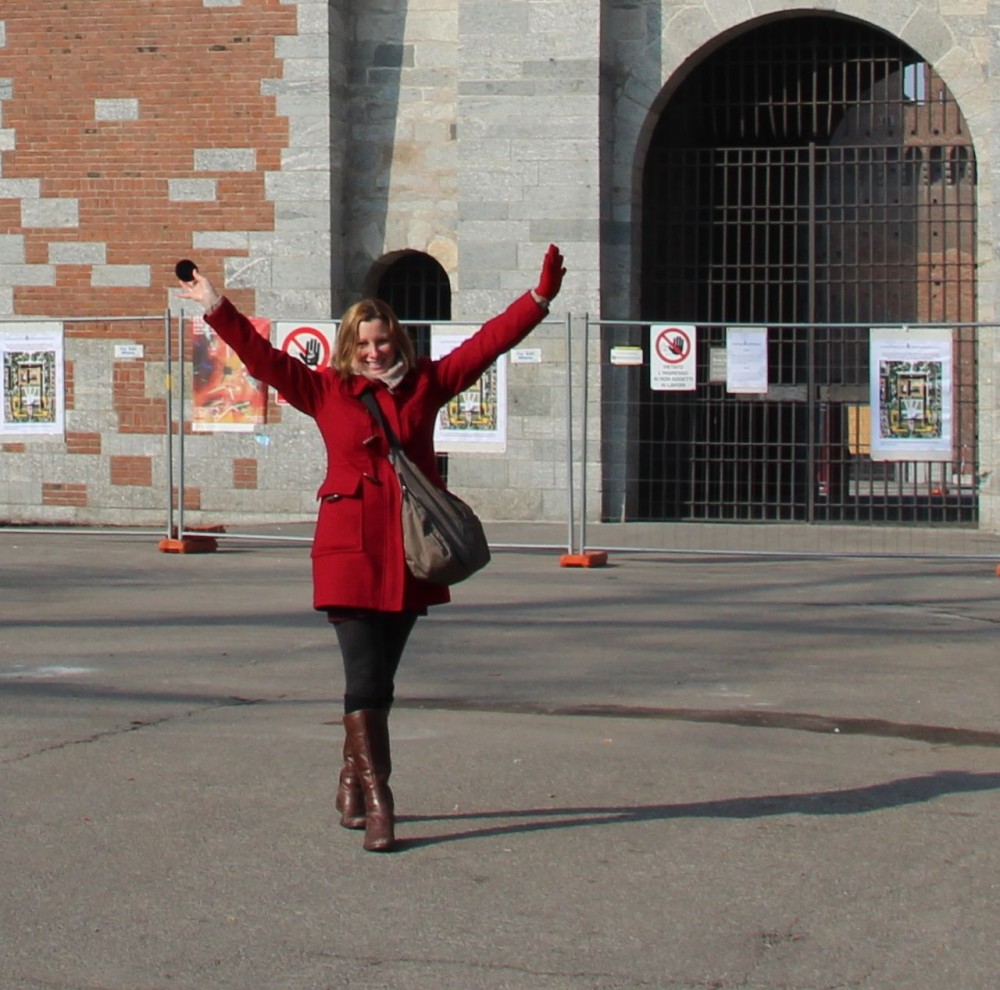All that is gold does not glitter, not all those who wander are lost; the old that is strong does not wither, deep roots are not reached by the frost. J.R.R. Tolkien
There is something so comforting about visiting a town where your family is from, to find a branch of your family tree that directly reaches to a specific place, that relates to your heritage and your history both genetically and emotionally.
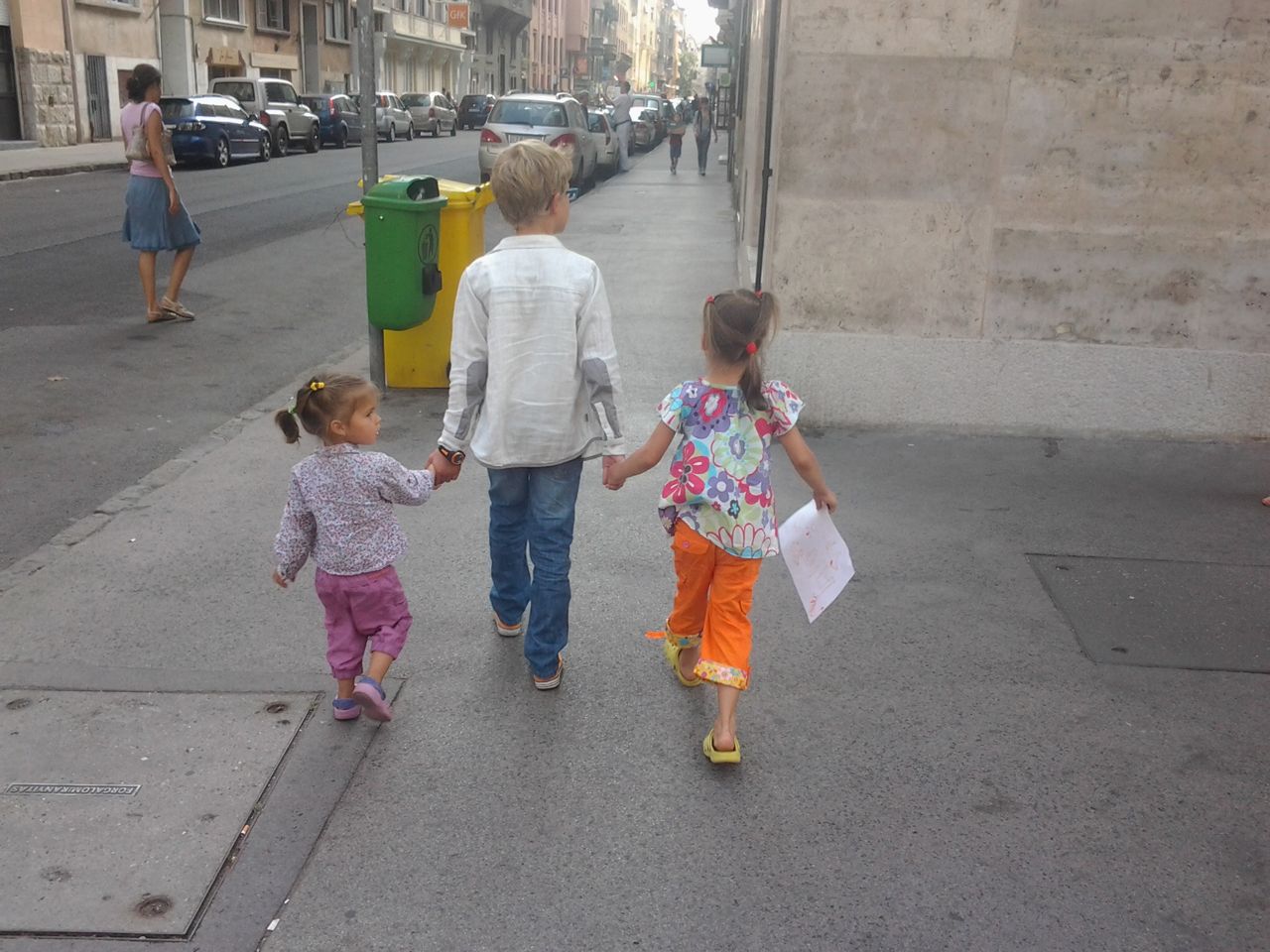
I time travel when I visit Bakanysákány. I think of my grandfather running the train station in the 1950’s wearing his blue uniform and train master hat. He would be surprised at the bright yellow they painted the station from the crimson red.
My two grandmothers grew up in this village as well, and they were friends. I think what life would have been like in rural Hungary and about all the people they met throughout the years. The countries they travelled through, the places they lived, who they eventually married and all their family adventures; play around in mind like an old black and white film projector playing on a wall.
In loving memory of my Ilonka Neni, my Vasali Nagymama and my favourite, Giricz Nagypapa, who I carry with me through my life and keep their stories alive for the next generations.
And for Giricz Nagymama who is 96 this year, who lives in Canada near my dad and is proving that longevity runs on both sides of our family.
Bakonysárkány is a village in Komárom-Esztergom county, Hungary. Population 977 and 14.13 km2 (5.46 sq mi)

When I see the sign Bakonysárkány to turn right to take me down the road that leads to the village, the feeling of belonging comes over me as I understand the link to where my own story began.
I used to come here with my parents as a child to visit my Grandfather on my mother’s side’s sister, Ilonka Neni, and my Grandmother n my father’s side’s brother, Steffi Bacsi. They were married and had three children; cousins that my parents shared. Genetically their children are the closest relations to my brother and I, and I always joke if they need an organ, I might be the one to ask.
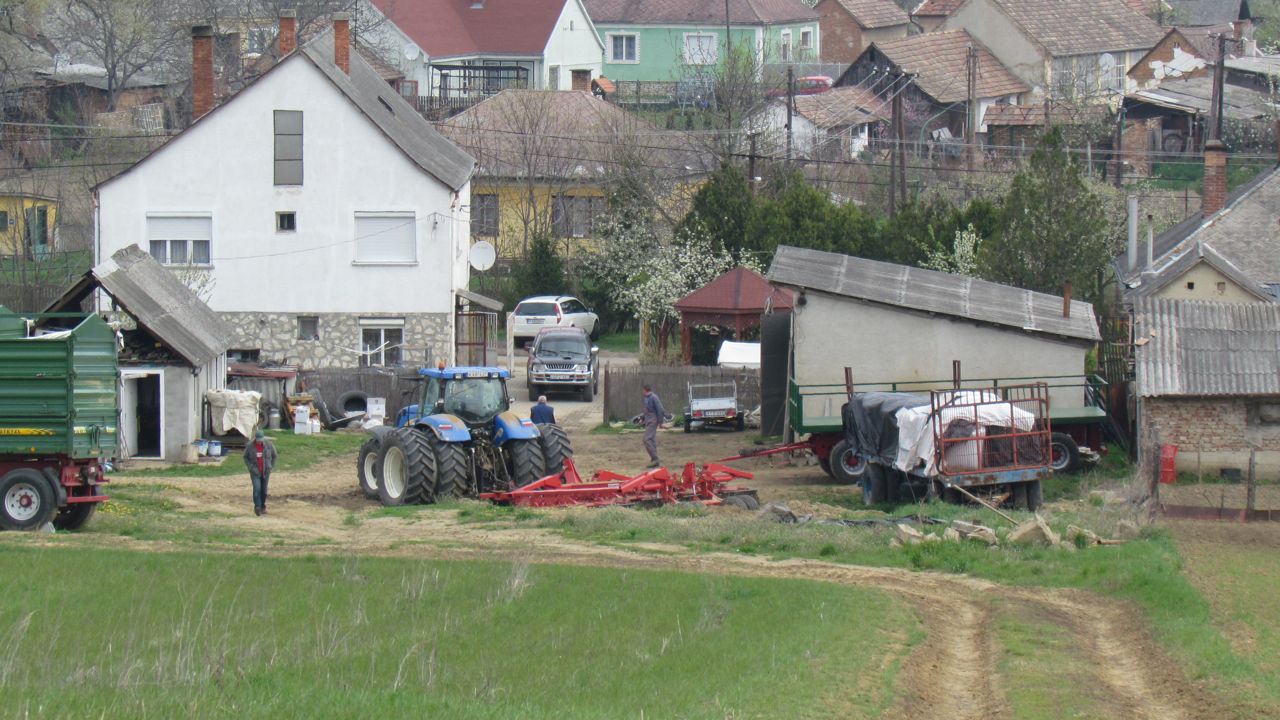
That is how my parents met, visiting their common cousins; Mom from the big city of Budapest and Dad from Victoria B.C. Canada, and eventually they fell in love over one shared summer holiday, wrote letters back and forth and they married the following year when my mother finished high school. Their blood is not related obviously, so no three eyed children here; just two members of the same family, marrying two members of another family- one generation apart.
As a child it was a holiday of feeding chickens and ducks, milking the cow, visiting the pigs and piglets, and riding their horse drawn carriage (the original Lovas-Koci or coach) through the narrow dirt roads of the village. We waved to everyone as we passed by, having as much fun as if we were visiting Disneyland.
There were always pieces of fried chicken fresh out of the pan to eat that my auntie would kill in the morning before we woke, the remains of feathers to be found on the ground where she carefully plucked the bird clean. This was the freshest, organic meat you can imagine; raised with love from the beginning right to the end. Ethically grown and raised animals, hand fed and hand killed.
Her garden was full of beautiful vegetables too and I helped her harvest what was ready for supper. My aunt made my favourite chicken noodle soup for lunch and we would eat in the outdoor kitchen in the garden the table lay over a dirt floor. But in the summer it was so cool in there, and the house was roasting hot from the sunny sun.
My brother and I would walk around the village, throw rocks in the stream, climb apple trees and walk through the tall grass fields.
Later, when we were older, my little cousins would join us too. They were much younger and only related to our Ilonka Neni, but my uncle was still so very special to us all. Almost like grandparents except they lived on a farm, and we would take the train to see them from the metropolitan city. It was a big adventure for us children!
We would drag our little cousins around, and ride our bikes to the neighbouring village to visit the cemetery. Here we read all the names, half were related to us.
Our family tree was right there on the tombstones and went back hundreds of years. I never tire of visiting the graves where my family rests. It doesn’t feel morbid or scary to me knowing that their remains are under the ground. Instead, visiting them and sharing some of their stories is my way of keeping them alive. I feel connected to our family when I am here.
My Giricz Nagymama, (Nagymama is the word for grandmother in Hungarian) was always tagged with her last name. We talked to her in a formal way, as she was brought up in the Victorian era. She likes us to show respect, but it did keep her at a distance from us. She is now 96, and she is the only one left who was a part of these stories. Those emotional war stories that bring tears to her eyes, disputes from years past and secrets kept; the gossip of those times seemed scandalous to them but now to us seems like normal everyday occurrences. Oh how times have changed.
I asked many questions over the years of my grandparents, uncovering the clues and many of these stories have come to life especially when revisiting their homes. With almost all of that generation gone, I want to start a series about them and my Hungarian heritage.
“The Hungarian” a story about tragedy, war, revolution that spans three generations, three languages, over two continents and in five countries to make the full circle back to Hungary; The Long Way Home. Not a bad synopsis!
And now I bring my own children to visit Bakonysárkány to show them the house of my Great-Grandmother before it is a pile of rubble, like her neighbour’s house where my Grandfather grew up.
And the crucial story about how my Great-Grandfather left for America after having three children and came back 7 years later and had one more. It was this precious baby girl who grows up to become my Ilonka Neni. Was it chance, or was it fate that he came back? I wouldn’t be here if he didn’t go to the USA on that ship, or if he didn’t come back from the states either. I feel thankful- very, very thankful.
It is written…
I show my family the grave of a one-year old baby girl born before my Great-Grandfather left who died of disease, very common to lose a child to influenza or consumption. Was it this grief that drove him away in the first place? I try to line up the pieces of the puzzle to make a full story, but alas my imagination gets the better of me.
I show my children how these old houses were built of large stones and mud with a fireplace smack in the middle. Smoke stains the roof before heading out the chimney, and is still black 100 years later! The house has dirt floors, I guess they always wore shoes and shared one bedroom. The bathroom was outside, literally a hole in the ground and they had a large barn for the animals, mostly poultry.
Such a small home for so many people, but they were among the lucky ones who could sustain a family on the food they grew. And for the most part, they lived during the Austro-Hungarian empire which was a profitable and happy time in Hungarian history.
Hungarian history to me are the lives of my ancestors, more so than any of the famous baths, or the historical events in the history books. It is the intricate lives and personal stories that make up who we are and how the big events affect them.
Last month my aunt died. She was in her late eighties. I was in the throes of relocating to Hungary, juggling kids and students, baggage and cat…. the last time I saw her was in Mor living with her son and daughter. She put on her blue apron as she often did, a big smile for me, and the same loving eyes as my mother. She made me a bowl of paprikas chicken, got the kids to sit down at the table to eat, and she asked me about life in France. She was always curious, and happy to hear our news. She smiled as she listened. She told me she was getting tired. She told me that she was on her last year. Somehow she knew.
She talked about my grandmother in Canada and how lucky she felt to marry her brother. She talked about my other grandmother, how they would walk to school together when they were girls and how they lived next door to each other. She told me how much she missed their telephone calls now that my grandmother passed away. She said there is no one left.
I thought about how weird that must feel; to look around and no one is left to share the things you witnessed throughout your life.
The three of them were best friends right till the end. My grandmothers and my auntie, eternally tied together through a village, their childhood experiences and marriage. They watched their children grow up, and move away, leaning on each other, always together.
They visited each other often as family does until they were too old to make the long flights from Canada to Hungary to visit any longer. My grandmother in Budapest got too old to get down her stairs and they started to cherish their weekly telephones conversations.
I remember being on one end or the other listening to them giggle like school girls over the phone, and other times listening and trying to help the other with a problem and other times sharing a recipe. It was always the same time, morning for Giricz Nagymama on Sundays and evenings in Hungary. They would anxiously wait by the phones for the time to come, never wanting to miss a call, eagerly waiting for news from home.
What was the point of it all if we must die?
Then I remember their stories; their joys, their music, their dance, their food, their baked goods, their special occasions, and how much they truly loved each other. I know that of course it is all worth every moment, good and bad, to live as best you can, right until the very end. Life is but these moments, strung together to make our lives.
Most of our family have moved out of the village to find jobs in bigger nearby cities. But my grandmother’s sister had a son, who has two boys, who I go to see in Bakanysárkány often.
They are my example of the close knit family I would have expected to have had if my parents somehow lived in Hungary. I have a great admiration of the way their family sticks together, helps each other through hard times and always supports each other at every turn.
I call my mother’s cousin’s wife my aunt, although she really is married to my second cousin. Ili Neni knows I love duck and she corn feeds her ducks by hand weeks before my arrival. The boys and their families meet around her table to enjoy the joyous feast. It is all I eat my entire stay; Ili Neni’s organic fed, hand raised duck and her famous red cabbage.
We stay up late sharing stories, feelings and life. I love her very much, and cherish our moments together.
The two boys are my age and although they are not close family, I love them all the same. It is the connection I feel to this village that makes me love them for staying, admire them for succeeding and feel such a closeness watching their children grow up in this village. It is no wonder that my son Daniel visits here each year and loves it as I do. I hope to continue watching the children grow up in the fields of Bakonsárkány.

